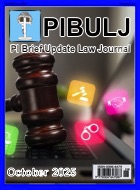How late is too late? Leadingway Consultants v Ayoub Saab & Anor [2025] EWCA Civ 582 - Andrew Cousins, 7 Harrington Street Chambers

10/07/25. Often in applications for setting aside default judgment and relief from sanctions the court has to consider the question of promptness in the making of the application. In Leadingway Consultants v Ayoub Saab & Anor [2025] EWCA Civ 582 the Court of Appeal was recently faced with a case concerning such applications from two Defendants.
Background
The case arose from alleged breach of an agreement concerning the liquidation of a company in Bermuda.
Proceedings were served personally on the first defendant on 24 March 2022. As no acknowledgment of service or defence had been filed, on 4 August 2022 default judgment was entered. That judgment was served personally on the first defendant on 26 August 2022.
Service on the second defendant took longer, and required various extensions of the validity of the claim form. Following an order permitting service by alternative means, the second defendant was formally served by transmission of the documents via LinkedIn and Facebook and delivery by bailiffs to a partner at a law firm in Cyprus. Service was deemed to have been effected on 30 August 2023. On 18 September 2023 an acknowledgment of service was filed on behalf of the second defendant stating an intention to challenge jurisdiction. Thereafter, extensions of time to file theapplication challenging jurisdiction were agreed. When the second defendant applied for a further extension by application notice dated 13 November 2023, the claimant agreed, but on terms that if the second defendant failed to file a jurisdiction challenge within 21 days of the proposed order, he would be debarred from challenging jurisdiction and from defending the claim.
The second defendant agreed to those terms. On 29 November 2023 the Unless Order in the form agreed between the parties, was made, but the second defendant filed its application one day outside of time.
The position was therefore that the first defendant had waited 16 months to challenge a judgment made against him. The second defendant had been one day late in filing an application for relief from sanctions. In the High Court both defendants were granted relief and the claimant appealed.
The Court of Appeal allowed the appeal against the first defendant, finding that there was no good reason for the judgment not to have been challenged within 16 months that he had waited. The appeal in relation to the second defendant's relief was dismissed as the discretion exercised by the High Court was reasonably within his scope.
Discussion
The case conducts an interesting assessment of how the court should approach defaults of orders and civil procedure rules, where those defaults involve short timescales and more lengthy timescales.
The applicability of the Denton criteria to applications to set aside was considered in FXF v English Karate Federation Ltd [2023] EWCA Civ 891, where the Court of Appeal held that the Denton criteria apply in their full rigour to such applications.
Promptness will always be a factor of considerable significance when considering applications to set aside judgment, and applications for relief from sanctions. If there has been a marked failure to make the application promptly, a court may well be justified in refusing relief. As set out in Standard Bank Plc v Agrinvest International Inc [2010] EWCA Civ 1400, this can be the position even if the the defendant has a good prospect of successfully defending the claim at trial.
It is not to say though that delay will always lead a court to refuse an application to set aside a judgment. As set out in Barons Bridging Finance Plc v Nnadiekwe [2012] EWHC 2817 (Comm), the court allowed a defendant to set aside a judgment entered several years earlier, on the basis that:
- There were very serious conflicts of evidence between the parties, and the defendant alleged that she was the victim of fraud;
- The case had not lain buried since judgment was entered, it had continued for some time. Given the importance of the issue and the facts, justice required that the judgment be set aside.
The guiding principle was set out in Strachan v Gleaner [2005] UKPC 33, where it was stated that there could be no rigid rule to govern the issue, it depended on the facts of the particular case. In Regency Rolls Ltd v Carnall [2000] EWCA Civ 379, the court considered the meaning of the word “promptly”, and held that 30 days was too long a delay before making the application in the particular circumstances.
This has to be contrasted with the decision in Hart Investments v Fidler [2006] EWHC 2857, where the judge concluded that a delay of 59 days in making an application under CPR 13 was “very much at the outer limit of what could possibly be acceptable”.
Conclusion
The question of what constitutes ‘prompt action’ will always be a matter that turns on the facts of each case with no definitive timescale capable of being applied. The Court of Appeal’s decision in Leadingway though is a helpful reminder that if you need relief from sanctions, a delay can imperil the chances of relief being granted.
Image ©iStockphoto.com/daneger












![Appeal judge rules that credit hire company has no costs liability following a finding of fundamental dishonesty in personal injury case: RSA v. Fastrack Solutions Limited [2023] 4 WLUK 92 - David Bowden, Erimus Chambers](/content/images/resized/images/stories/carkeys_72_72.jpg)


